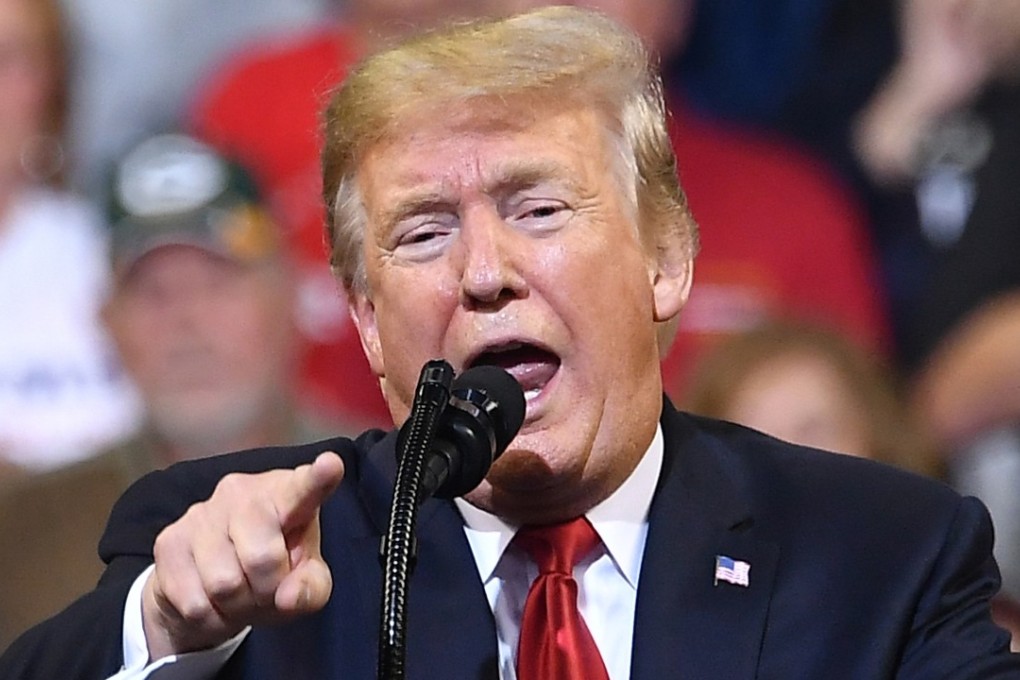Opinion | Midterm elections will determine future of Trump presidency
- By conventional measures, the outcome of elections for congressmen and state officials is hard to call
- But with partisanship at its peak, the usual rules may not apply

American midterm elections for members of Congress and state officials do not compare with presidential contests. It is therefore not so easy for the media and political commentators to convey their importance. Tuesday’s elections are an exception, thanks to the campaign dominance of President Donald Trump, the most divisive and either liked or disliked US leader in living memory. He may not be up for re-election, and it may be the all-important control of Congress that is at stake, but Tuesday’s vote will be seen more than anything as a referendum on Trump that will determine the future of his presidency.
By conventional measures the outcome is hard to call. Analysts say the most important pointer to the prospects of a president’s party is his job approval rating. Trump’s numbers are not good. But with the economy thriving, the usual rules may not apply.
It should not take Trump’s polarising personality to get people out to vote. He has created enough defining policy issues of our time such as American drawback from world leadership, a hard line on migration, a massive tax cut for the rich, and a trade war with China that is also hurting Americans, all of which reflect campaign rhetoric.
US elections feature one of the most diverse groups of candidates ever
But with partisanship at its peak, and the threat of an anti-Trump Congress after Tuesday, the president has apparently decided in the last days before the vote that policy and ideas are not enough, apart from announcing a middle-class tax cut that political allies and many of his aides had not heard about. Instead he has tapped into prejudice and division apparently in the hope of provoking a backlash which, in turn, will get the white vote out in favour of Republicans at the polls.
First he ordered up to 15,000 troops to the border to repel a caravan of migrants from Central America still about 1,500km away in Mexico, despite the fact that thousands of national guard and border police are already there. It is difficult to escape the conclusion that the show of force is not to head off a crisis but to create the atmosphere of one. Second, out of the blue in an interview released this week, Trump – the son of an immigrant mother – proposed to end by executive order the constitutional right to US citizenship of babies born in the United States to non-citizens. Most legal scholars doubt he has the power to do so. Both ploys, days ahead of the vote, are transparent appeals to racist and anti-migrant sentiment.
Depictions of Trump as unpredictable and impulsive fall short. In fact, he is arguably consistent in governing for Americans who agree with divisive sentiments. Tuesday’s election is their business, but if America’s friends were to express a wish, it might be that its people convey a desire through their vote for more inclusive and outward-looking and less confrontational leadership, at home and abroad.
